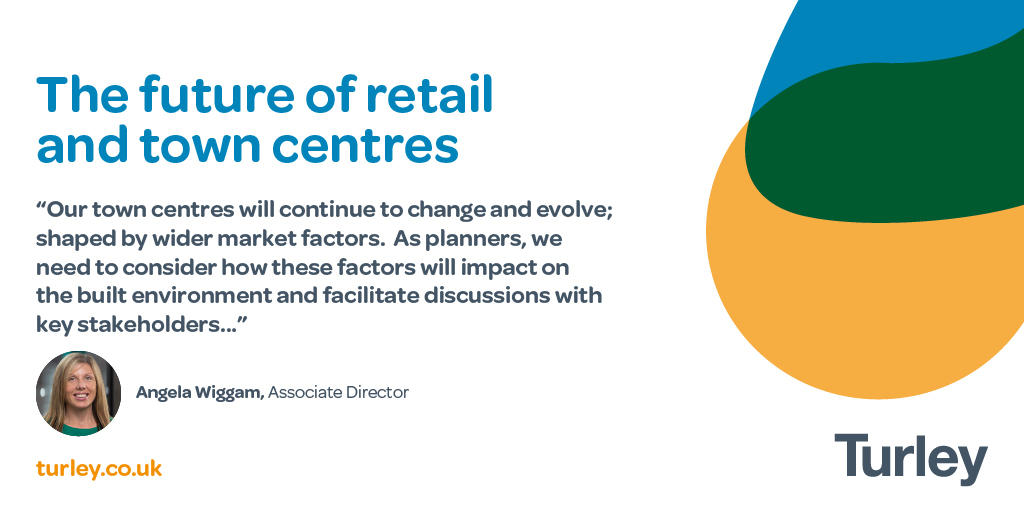Next Comment
20 November 2017
{content.field_page_title}}The high street of the future
A look forward 10 years into the future for our high streets
Read moreWhat are you looking for?

Planners are often criticised for being slow to respond to new and evolving concepts; can key trends help property professionals become more proactive?
Economic, social and technological changes are shaping retailing and in turn having a direct impact on existing and new developments. Three key trends are having a major effect:
Retailers are seeing price savvy customers making informed choices about the products they are purchasing. This has affected the profitability of large format food stores and has given rise to the growth in discount stores.
Shoppers are ditching the weekly shop in favour of ‘top up shopping’. Sales of non-food items and a reduced level of spending on grocery items have forced retailers to evaluate their portfolio of stores. Larger food stores have sought to reduce the amount of ‘white space’ through the introduction of concessions and other service uses including opticians and travel agents.
A solid growth in online food sales has been complemented by a continued preference to shop instore for other products which shoppers want to touch and see such as clothes, beauty and homeware. While shoppers are still keen to shop instore for particular items, this tends to be interlinked with an expectation of an ‘experience’. It’s clear that shoppers expect more from town centres than just shopping. There is a place for retail in our town centres, but the space it currently occupies needs to be reconfigured to respond to the evolving retail market of the 21st Century.
Recently there have been fundamental changes in retail planning policy in Northern Ireland, the most significant being the introduction of the Strategic Planning Policy Statement (SPPS), which was adopted in April 2015.
The centre piece of the policy is a ‘town centre first approach’ which goes much further than simply requiring that new retail development locate within a town centre. The policy requires that all developments which contain town centre uses should be located within a city or town centre. If not, applicants are required to undertake a sequential test to demonstrate that there are no other sequentially preferable locations within the retail hierarchy which could accommodate the site. Alongside the sequential test there are additional tests of retail need and impact which also need to be addressed.
The second area of change centres on retail planning applications with the number of applications having fallen dramatically in recent years. Aside from this, the greatest change is in the type of retail applications. Where previously developers were seeking planning permission for new food stores, extensions to shopping centres and retail parks, this trend has been replaced with:
The change in the number and nature of retail planning applications is a reflection of the strategic context of retailing and the challenges facing the industry. The physical consequences of change are seen within our city and town centres.
Analysis of major planning applications in Northern Ireland suggests that the ‘town centre first’ policy within the SPPS is biting. Of the nine major retail planning applications submitted to Belfast City Council (up to Jan 2018), all of the applications with the exception of one were located within a policy protected centre. It’s a similar pattern across Northern Ireland, with a small number of applications being approved in an out of centre policy location on the basis of material considerations which have outweighed setting policy aside.
Vacancy levels within city and town centres have always been one indicator as to the vitality and viability of a centre; essentially a measure of its health. At the end of 2017, vacancy levels across Northern Ireland stood at 14% in comparison to the UK figure of 9.6%.
While Northern Ireland may have a higher vacancy level than the UK average, vacancy levels have been steadily declining over recent years. Comparative data for the four retail centres (Belfast, Ballymena, Derry/Londonderry and Enniskillen) indicates that vacancy levels within Belfast are one of the highest at 17%; while the regional centres of Ballymena and Enniskillen outperform Belfast on this indicator.
Our town centres will continue to change and evolve; shaped by wider market factors. As planners, we need to consider how these factors will impact on the built environment, and facilitate discussion with key stakeholders to consider:
2018 will be the year of the Local Development Plan. The 11 planning authorities within Northern Ireland are all engaged in preparing new Development Plans for their respective areas. The opportunities to consider the retail hierarchy; the extent of retail boundaries and specific retail policies all emanate from the local development plan.
As property professionals, if we want a retail sector which is responsive to changing market forces, combined with vibrant, dynamic and successful city and town centres we need to engage with the Local Development Plan process which is currently underway.
The Local Development Plan process provides an opportunity to shape and deliver changes that will contribute to a successful retail sector combined with vibrant and successful town centres.
For more information on retail and town centres or the Local Development Plan process, please contact Angela Wiggam.
Angela Wiggam presented the above information to the RICS Northern Ireland Planning and Development Conference on 8 February 2018.
19 February 2018
20 November 2017
{content.field_page_title}}A look forward 10 years into the future for our high streets
Read more